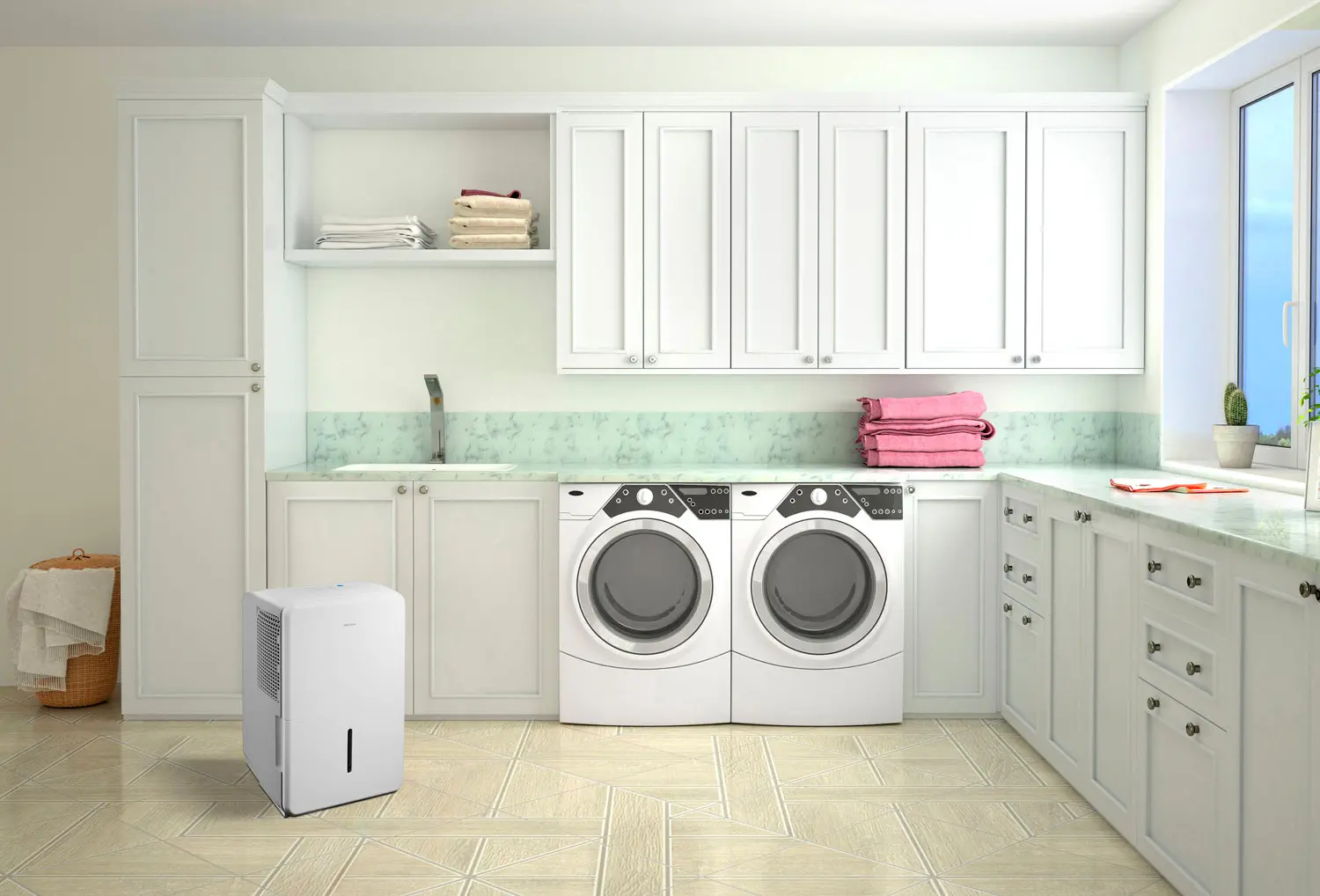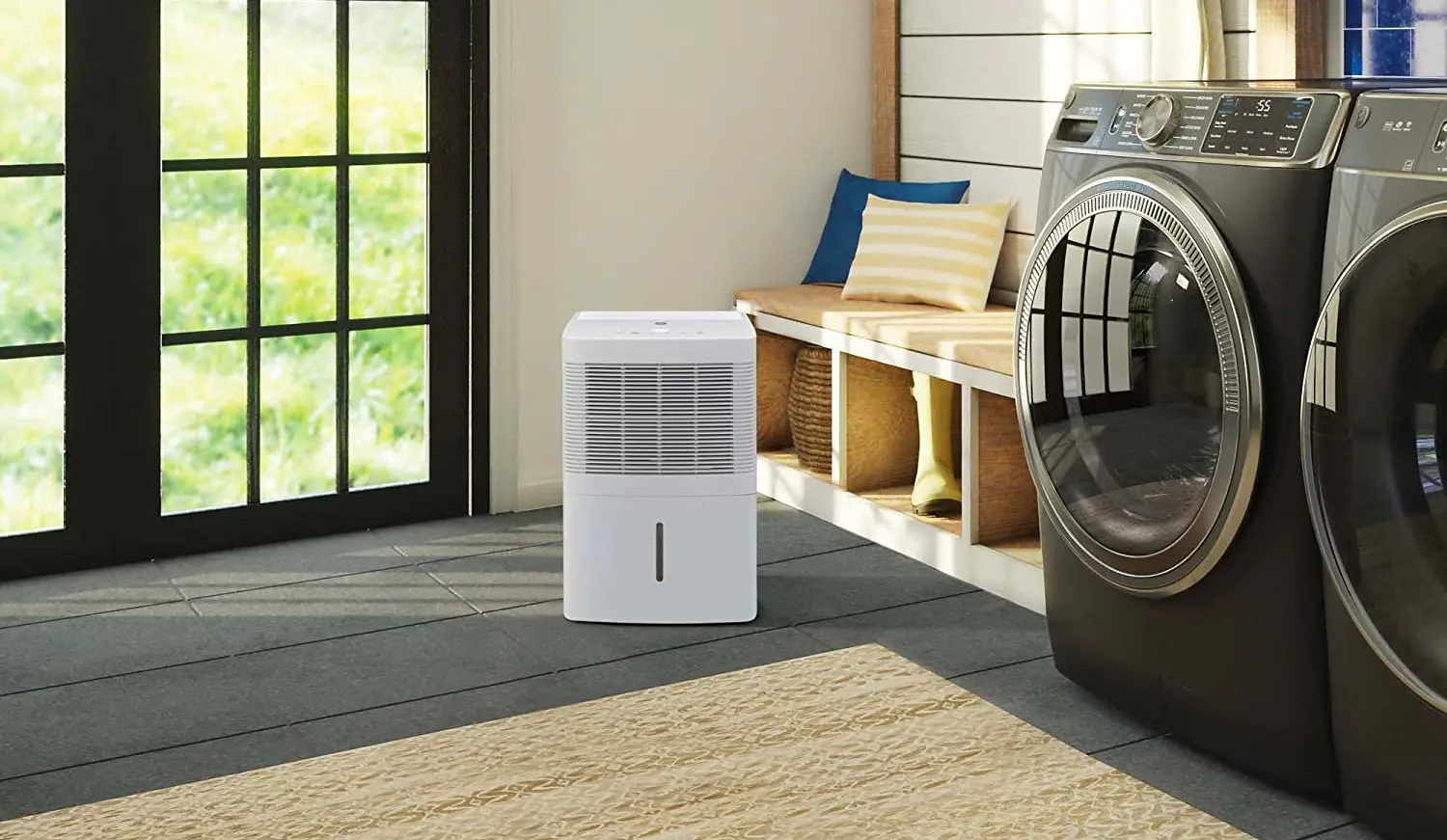
A dehumidifier in the basement is a great solution for damp smelling rooms. If you’ve ever walked into a damp basement and encountered an unpleasant, musty smell, you’re not alone. Musty odours in the basement can be a common issue. The smell often originates from mold, mildew, or dampness that lurks in dark and humid corners. Along with being a nuisance, these odours can potentially have health implications, particularly for those with allergies or respiratory conditions.
What is a dehumidifier and how does it work
A dehumidifier is a device designed to reduce humidity levels in a room. Specifically, a basement dehumidifier works by pulling air into the unit, cooling it down, and collecting the condensed moisture in a container or draining it away. By reducing the air humidity levels, a dehumidifier for the basement can help create an environment where mold and mildew struggle to grow, thus combating the musty smell.
How dehumidifiers can combat musty smells
The connection between humidity and musty smells in a basement is strong. A moist environment creates an ideal breeding ground for mold and mildew, leading to that characteristic musty scent. By lowering the humidity levels, a basement dehumidifier can directly impact the growth of these organisms.
Research has shown that maintaining indoor humidity levels between 30% and 50% can help reduce the growth of mold and mildew. A dehumidifier for the basement can help maintain this optimal range, reducing the risk of unpleasant smells.
Choosing the right dehumidifier for your basement
Choosing a basement dehumidifier requires careful consideration. Here are some factors to think about:
- Size of space: The capacity of the dehumidifier should correspond to the size of your basement.
- Climate: Your local weather conditions might influence the type of basement dehumidifier you need.
- Energy efficiency: Look for models that consume less energy, as they’ll likely run frequently.
Features such as filter quality, humidistat, and drainage options might also influence your choice of a basement dehumidifier.
Additional measures to get rid of musty smell
While a dehumidifier for the basement can play a vital role in reducing musty smells, additional measures might be necessary:
- Regular cleaning and ventilation can freshen up the space.
- Identifying and repairing leaks or water issues can prevent moisture accumulation.
These strategies, combined with the right basement dehumidifier, can create a fresher, healthier environment.
Dehumidifier maintenance for long-term success
Regular maintenance of your basement dehumidifier is essential for ongoing success in combating musty smells. Regular cleaning, proper placement, filter replacement, and proper settings will ensure your device works efficiently. Also, when using a model with a collection container, regularly emptying the collected water from the container will prevent spills and also help improve air quality.
Case studies and FAQs
There are numerous anecdotal reports of individuals successfully eliminating musty smells with a dehumidifier for the basement. While individual experiences may vary, consistent positive feedback points to the effectiveness of using a dehumidifier.
Can a basement dehumidifier completely eliminate musty smells?
A basement dehumidifier is an effective tool in reducing musty smells caused by humidity, mold, and mildew. By maintaining a controlled humidity level, it creates an environment less conducive to the growth of organisms responsible for the odour. However, it’s essential to recognize that a basement dehumidifier alone may not completely eliminate the musty smells. Other underlying issues, such as persistent leaks, poor ventilation, or hidden mold growth, could continue to contribute to the problem. Addressing these issues alongside using a dehumidifier for the basement will provide a more comprehensive solution.
Is a dehumidifier expensive to run?
The cost of running a dehumidifier can vary widely based on factors like the model, size, and how often it is used. Generally, energy-efficient models are designed to consume less power, making them more economical in the long run. It might be beneficial to research and select a dehumidifier that has energy-saving features and complies with local energy efficiency standards. Considering your local electricity rates and the specific requirements of your basement will also provide a more accurate understanding of the potential running costs. Combining the use of a dehumidifier with other energy-saving practices, such as proper insulation and timely maintenance, can further optimize the costs.

The use of a dehumidifier can be an effective method to reduce musty smells caused by dampness, mold, and mildew. Selecting the right dehumidifier for your basement, maintaining it properly, and combining it with other preventive measures can create a more pleasant and healthier basement environment. To make an informed choice, don’t forget to check out our ultimate Dehumidifiers buying guide!
While a dehumidifier is not a one-size-fits-all solution, it is a valuable tool in the battle against musty basement odours. Careful consideration of your specific needs and consultation with professionals as needed can lead you to a fresher, more comfortable living space.
This article was drafted using AI technology and then reviewed, fact-checked, and revised by a member of our editorial team.





